“Carnatic Cadenzas”
Abstract
The East India Company period witnessed the exchange of many material goods such as textiles, spices, opium and tea. These trade interactions also yielded opportunities to exchange cultural ideas between Europe and India. There were bi-directional influences in architecture, paintings, textile, music, and several other aspects of culture including music.
This lecture-demonstration intends to showcase the intercultural dynamics present in the realm of South Indian classical music. Specifically, the presentation will focus on Nōṭṭusv́ara, a collection of compositions where vernacular lyrics were harmonized with popular Celtic and Baroque melodies. This set of compositions serves as an intriguing representation of the musical experimentation and synthesis that emerged in South India during the 18th century, resulting from the interactions between practitioners of indigenous and European music. The intercultural aspects of Nōṭṭusv́ara will be highlighted through the use of voice, violin, and veena. Additionally, the presentation aims to delve into the historical background, biography of tunes, elucidating the European influences present in South Indian classical music.
The content curated in this lecture-demonstration is part of a research project conducted at National Institute of Advanced studies (NIAS), Bengaluru, funded by Indian Heritage in Digital Space, Department of Science and Technology, India.
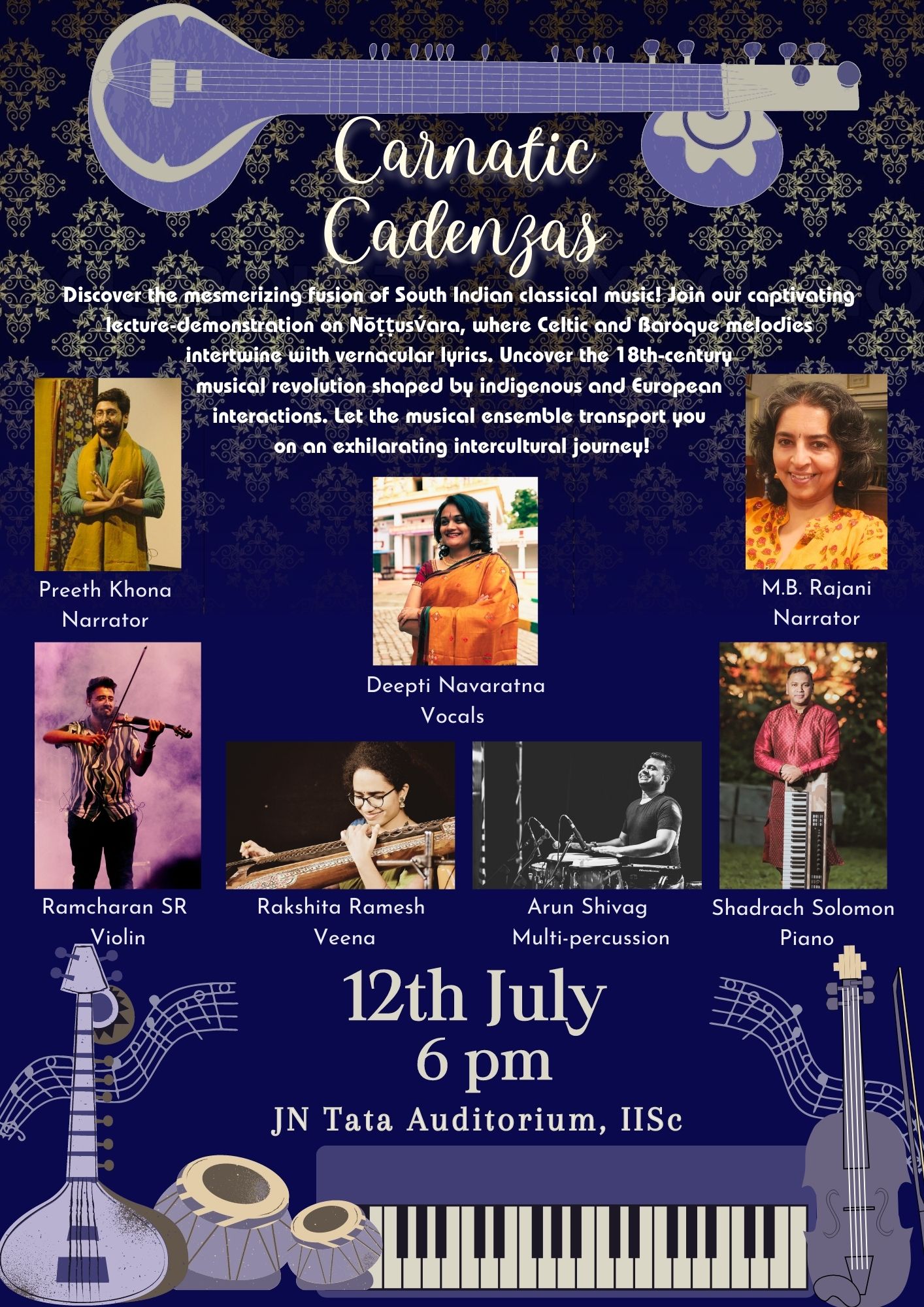
About speakers/artists:
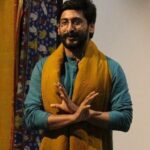
Preeth Khona is an archaeologist, wildlife conservationist, classical music enthusiast, and an educator. Preeth is currently pursuing his Ph.D. at NIAS, his research is conducted under the DST project Early Fusion Music which explores the historical, musicological, and computational analysis of cross-cultural music between India and Europe during the British period.
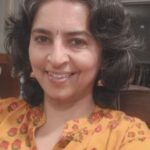
M.B. Rajani is an Associate Professor at the National Institute of Advanced Studies (NIAS), Bengaluru. Her research focuses on analyzing cultural landscapes using geospatial data to uncover archaeological features and preserving built heritage amidst urbanization. She also studies intercultural exchanges during the colonial period in visual arts, music, and cartography, as well as the musicology of classical Indian music.
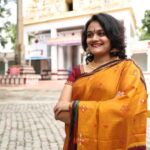
Dr. Deepti Navaratna is a musician, neuroscientist, and cultural leader, known for her ground-breaking research and captivating performances. Formerly the Regional Director at the Indira Gandhi National Centre for the Arts (IGNCA), she spearheaded pioneering initiatives that bridged the gap between arts and sciences. Presently, she holds the esteemed T.V. Raman Pai Chair of Excellence and is a Humanities Professor at the National Institute for Advanced Studies in Bangalore. With a wealth of accomplishments as a South Indian Classical musician, she has graced prestigious venues worldwide, including Asia Society, Symphony Space, and Harvard Arts Museum. Recognitions abound, such as the India Foundation for the Arts – Research Grant and the St.Botolph Foundation’s Emerging Artist Award. Driven by her passion, she serves as the director of ‘The Carnatic Alchemy Project,’ a nonprofit organization dedicated to sharing the beauty of South Indian Classical music with diverse audiences globally.
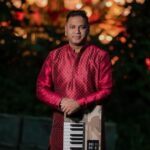
Shadrach Solomon, a musician and composer, learned western classical piano from the same school as His Highness Sri Jaya Chamaraja Wodeyar of the Royal family of Mysore. He has composed music for over 100 Kannada and Tamil films and performed at iconic venues like Wembley Stadium in London during Prime Minister Modi’s visit. Shadrach is part of the London-based band RAAGA GARAGE and has performed in 25 countries. He also mentored Ravi Basrur, the music director of the blockbuster movie KGF.
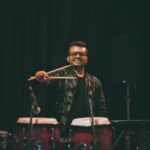
Arun Sivag, a musician and social entrepreneur in Bangalore, studied world percussion and South Indian folk instruments at the University of Gothenburg, Sweden. He actively participates in arts exchange programs and cultural projects across Europe, the USA, and Southeast Asia, collaborating with esteemed institutions like the United Nations and UNICEF. Arun has played with renowned artists, including Arijith Singh and Kumar Sanu, in over 15 countries. His dedication to social engagement and music has left a positive impact, particularly on Indigenous communities. He contributed to the background rhythm score for the blockbuster movies “KGF Part 1 & 2,” showcasing his musical talent and commitment to unity through art.
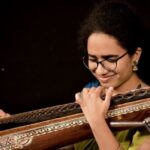
Rakshita Ramesh is a young veena artist, trained by Vid. J. Yoga Vandana in Bangalore. She performs concerts nationwide and has received multiple awards, including the Best Veena Artiste award for the Junior category at The Music Academy’s annual December Music Festival in 2022. Rakshita has also participated in various musical ensembles directed by renowned musicians.
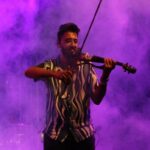
Ramcharan SR, a talented violinist, is a disciple of Vid. Hosahalli K Subbu Rao. He specializes in promoting instrumental fusion music. Ramcharan began his musical journey in Indian classical music at age 12 and has since mastered multiple genres. He started his professional career at 21 and formed a successful band called THE RAMCHARAN’S COLLECTIVES, performing in various cities and prestigious events like Mysore Dasara Chikballapura Utsava.

